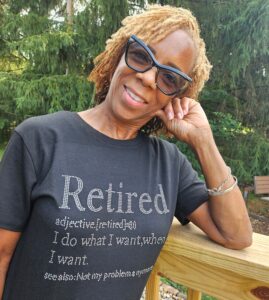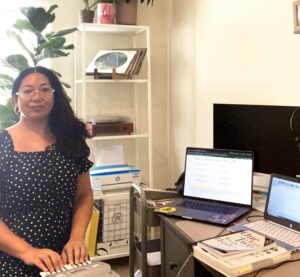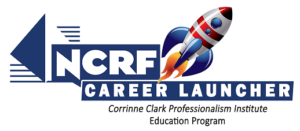By Kevin Nourse
New court reporters face a variety of obstacles that can derail their careers. These barriers range from meeting speed requirements in their training programs to getting established in their first full-time role. Psychologists have known for decades that one important factor that helps successful people overcome their challenges is resilience — an ability to bounce back from setbacks. You can enhance your resiliency and thrive in your new career by partnering with a mentor.
In this article, we explore mentoring as an essential ingredient for helping you increase your career resilience and successfully enter the court reporting profession. You will gain insights on what mentoring is, how to find one, and tips for working with your mentor.
What is mentoring?
Mentoring is a partnership you can form with an experienced professional focused on your development and career success. This partnership is a relationship between you and your mentor where you both agree to cooperate as a way of advancing your mutual interests. Mentors agree to serve in this role because they want to help advance the profession and often gain enjoyment from helping people grow. As a mentee, you are interested in successfully completing your court reporter training and getting established in your first role.
While many new court reporters rely on social media, such as Facebook, to get support and answers to their questions, some prefer an on-going trusting relationship with a mentor. Your mentor can play an instrumental role in helping you complete your training and get established in your first role.
Who needs a mentor?
While you should focus the mentoring partnership on your unique needs as a mentee, there are some common situations where mentoring can help.
Career changers considering a career as a court reporter
Making a decision to enter a profession can be an overwhelming challenge without the right information. Career changers interested in becoming a court reporter may choose a mentor to help them determine whether it’s the right profession. Activities like shadowing experienced court reporters to observe what their day is like or conducting informational interviews with seasoned court reporters to learn more about the profession are great ways to find out if the profession is for you.
Students who are training to become a court reporter
Students in court reporting programs are faced with numerous challenges as they learn to master essential concepts and skills. Mentors can play a critical role to help students identify strategies to accelerate learning including increasing their speed. Lisa Hahn, RMR, a freelance reporter in Decatur, Ill., shared how she gave her mentee “tips to combine complex multi-syllabic words in one stroke.”
Another way that mentors provide support to students is in the form of emotional support. Rachel Barkume, RPR, is an official reporter based in Oakhurst, Calif.. She explained “family members don’t understand what court reporting school is like — every day we had pop quizzes that we had to pass as we built our speed. Even when you pass a speed test, the next day you have to work toward the next milestone. It can be very discouraging.” In these situations, a mentor can provide a supportive ear and validate the emotions experienced by a new student. By doing so, students are better able to sustain their perseverance to finish their training programs.
Steve Zinone, RPR, NCRA President and official reporter in Canandaigua, N.Y., adds that experienced mentors can also provide students “a light at the end of the tunnel” to help them maintain their resiliency with a clear vision of what life will look like once they complete their training program.
Recent graduates of court reporter training programs
Newly trained court reporters often experience stress in identifying their reporting focus as well as facing the realities of their first job. With the number of specialty areas available to court reporters as well as types of organizations that provide this service, people who are new to the profession can feel overwhelmed. Mentors can also help early career court reports explore and identify career options.
Starting out in a job after school can be highly stressful as new court reporters face the day-to-day realities that their training programs may not address. Barkume explained how she started her new job after school and was expected to perform reporting for motion call cases. She noted, “I had never experienced this before, and it was overwhelming … so I called my mentor at lunch for support and felt better equipped to complete the first day.”
Getting ready to be mentored
Before you begin looking for a mentor, be sure to do some self-reflection about what you want out of the relationship and the kind of mentor that would be a good match. The following questions will help you clarify your needs and facilitate a good match with a potential mentor:
- What are your goals or challenges for which a mentor could help?
- How often do you want to interact with a mentor (e.g., on a regular schedule or as needed)?
- Do you have a preference for the geographic location of your mentor?
- How do you want to interact with your mentor (e.g., email, in-person, telephone, Skype, etc.)?
- Are there certain qualifications or experiences that you would like your mentor to have?
Once you reflect on these questions, you can more easily communicate your needs to prospective mentors.
Finding a mentor
You have decided that a mentor could be helpful and clarified your goals. So how do you go about finding a mentor that is a good match?
There are two ways to identify potential mentors: informal and structured. Informal mentoring relationships happen when you meet an experienced colleague at a professional event and ask them to consider mentoring you to help you achieve your goals. This approach works best if you are comfortable attending professional meetings and engaging experienced court reporters one-on-one. On the other hand, structured mentoring relationships are those that are available from state court reporter associations as well as NCRA. With these mentoring relationships, you will typically submit a request via the website and be matched with a potential mentor. Formal programs, such as the NCRA Virtual Mentor Program, often try to match mentors and mentees based on criteria such as geographic location. Barkume explains “mentees can benefit from a mentor who is in the same geographic area and knows local formats … my mentor sent me the files she used, which saved me time.”
Whatever approach you use, it is useful to have an exploratory conversation with a prospective mentor to learn more about each other. During this conversation, you will also communicate your needs and goals. Ideally, the potential mentor will be a good match. However, it may be that the prospect is not a good fit. In this case, you might consider asking that prospect if he or she knows others who might be a better fit.
Interacting with your mentor
Assuming you found a good match for a mentor, how should you interact with him or her? One of the most important ways you can successfully work with a mentor is to take ownership of the interactions. Some specific strategies you can use include:
Establish an explicit contract at the beginning of a mentoring relationship
Excellent mentoring relationships begin with alignment between a mentor and mentee about the goals of the relationship and the various process associated with working together. While it is not necessary to write a formal agreement, it can be very helpful to clarify certain issues at the beginning of the relationship. For example:
- How often will you meet and using what communication channel (e.g., email, in-person, telephone, Skype, etc.)?
- Who will initiate the communication?
- What is the overall agenda for each call?
- What are the boundaries related to confidentiality of the information you share?
- What happens if a crisis emerges and you need to cancel a meeting? How much notice do you need from each other?
- If the mentoring relationship is not working out for you or your mentor, how will you handle it?
Follow through on your commitments
Mutual respect is a key ingredient of strong mentoring relationships. Mentors are there to support your success as a new court reporter. As part of their role, they may likely provide advice and suggestions. One way you demonstrate respect is listening to your mentor’s suggestions, maintaining a positive attitude, and taking action on the commitments you make. By taking action, you are communicating your respect for your mentor and his or her professional wisdom. By doing so, you are establishing a positive reputation for yourself in the profession.
Communicate regularly
While some court reporters create mentoring partnerships in which they communicate as needed when they face a particularly challenging issue, the best mentoring relationships incorporate regular communication. Many mentoring partnerships start off with more frequent contact then cut back once the relationship is solidly in place. Lisa Johnston, RMR, CRR, CRC, a CART captioner in Melbourne, Fla., advises mentees that “communication is key, and it is important for mentees to reach out to a mentor and not be shy about asking questions.” Johnston described how she interacted through email with one of her mentees every two weeks.
Revisit the relationship if your goals change
The goals you initially identified when you began the mentoring partnership may well change as you grow and develop. If you no longer have a need for your mentor because your goals were achieved, communicate this to him or her. Avoid the temptation to drift off and abruptly stopping communication with your mentor. Again, this is another way to demonstrate respect for your mentor.
Look out for your mentor’s needs
Many experienced court reporters act as mentors because they want to give back to the profession. However, your mentor has his or her growth and development needs too. One way to build a strong relationship that could last a lifetime is to pay attention to ways you can support your mentor. Perhaps you found an article that might interest them or met someone who would be a great networking contact for your mentor?
Consider mentoring others
Despite being new to the profession and possibly still being in school, no doubt there are others following in your footsteps who you might be able to mentor. Not only will you be supporting the court reporting profession, but you will also deepen your learning as a mentor. Zinone explained how rewarding it is when one of his mentees has developed his or her professional support network, becomes more confident as a court reporter, and begins to mentor others.
Entering the court reporting profession can be a demanding and rewarding challenge. The training programs are rigorous. Once you finish your training, there are many ways to launch your career in varying types of organizations. Resiliently bouncing back from setbacks you may face is critical to your success. By establishing a well-designed mentoring partnership early in your career, you can fulfill your dreams of becoming a successful court reporter.
Dr. Kevin Nourse is an executive coach and consultant based on Washington, D.C., and Palm Springs, Calif. He works extensively with associations to develop resilient leaders. Kevin is co-authoring a soon-to-be-released book with Dr. Lynn Schmidt entitled Shift into Thrive: Six Strategies for Women to Unlock the Power of Resiliency.





















